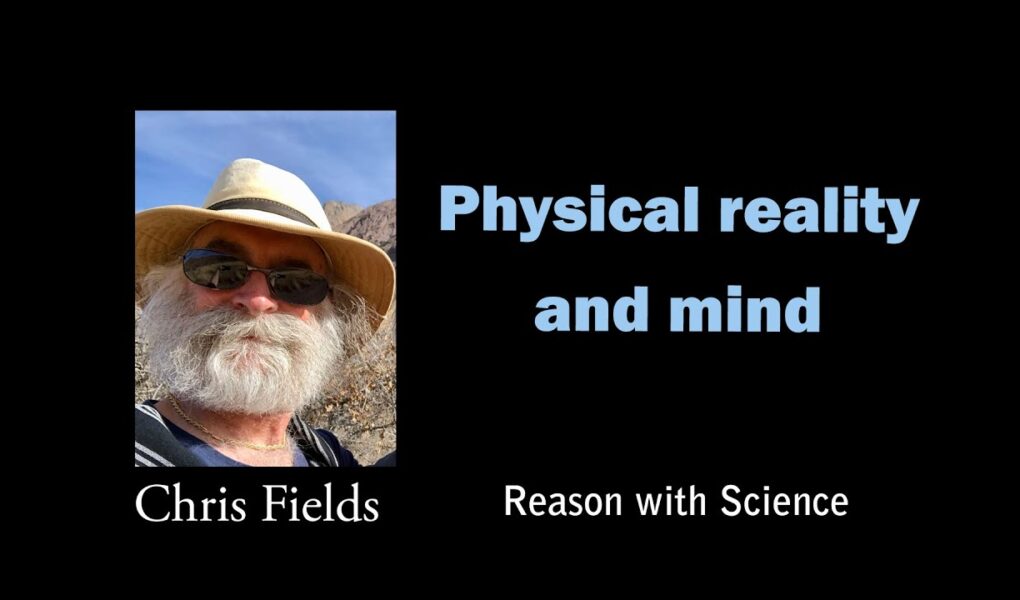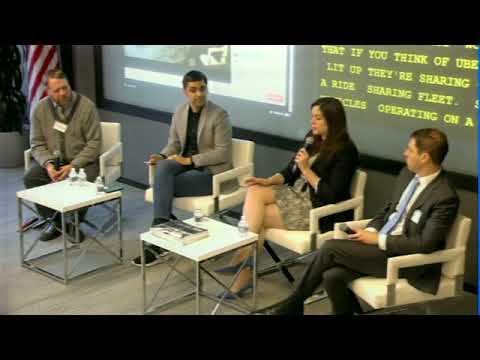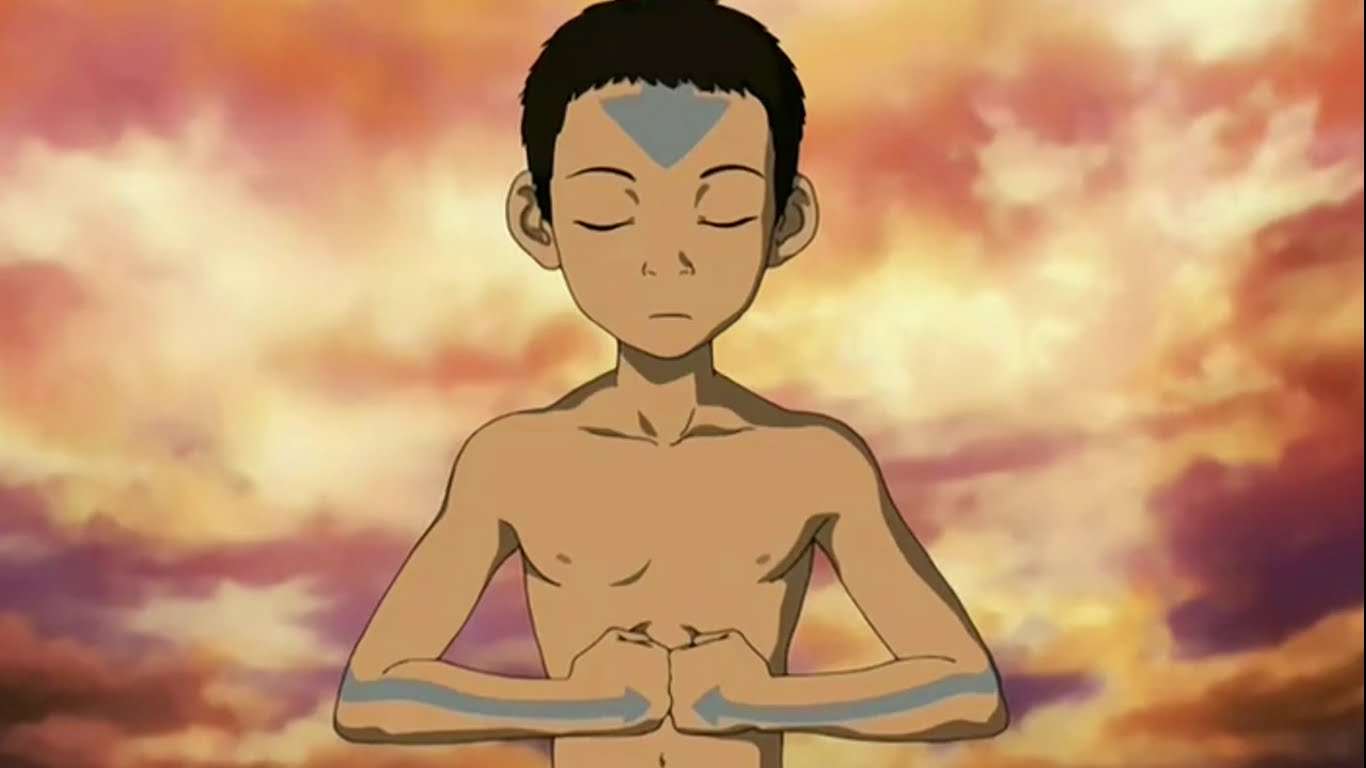Reason with Science
This episode is with Chris Fields. He is an independent scientist with a PhD in Philosophy from the University of Colorado. His research focuses on applying classical and quantum information-theoretic principles in developmental biology, cognitive neuroscience and fundamental physics. Here we talk about what is a self?, nature of consciousness, physical reality, quantum field theory, panpsychism, boundaries of cognition, complex systems and a theory of consciousness.
Guest info:
Website: https://chrisfieldsresearch.com/
Episode links:
Website: https://www.reasonwithscience.com/home/physical-reality-and-mind-with-chris-fields
Youtube: https://youtu.be/Mu_kW11ap8M
Spotify: https://open.spotify.com/episode/0ULSen1QoFeFLE2bOVi29P
Apple podcast: https://podcastsconnect.apple.com/my-podcasts/show/reason-with-science/407cd478-4271-4319-8318-fc378d4e7ccb/episode/physical-reality-and-mind-with-chris-fields-%7C-reason-with-science-%7C-quantum-theory-%7C-consciousness/d4828162-f8b0-4b97-8203-d7cb01c2e059
Google podcast: https://podcasts.google.com/feed/aHR0cHM6Ly9hbmNob3IuZm0vcy9iMjMyNDZlOC9wb2RjYXN0L3Jzcw/episode/MzBjMDI4ODUtNWUwZS00MzJhLTllZDEtMWRhNzgzODMyZDQ2?ep=14
Follow Reason with Science:
Website: https://www.reasonwithscience.com/
Youtube: https://www.youtube.com/channel/reasonwithscience
Spotify: https://open.spotify.com/show/5qFLGsPWjL4GAGidmF2nKh
Apple podcast: https://podcasts.apple.com/us/podcast/reason-with-science/id1641776894
Google podcast: https://podcasts.google.com/feed/aHR0cHM6Ly9hbmNob3IuZm0vcy9iMjMyNDZlOC9wb2RjYXN0L3Jzcw
Timestamps:
00:00:00 Introduction
00:00:53 What is a self?
00:06:13 Difference between a self of a bacteria and human?
00:11:20 Self and a mind
00:14:22 Consciousness and a self
00:20:13 Panpsychism
00:22:25 Boundaries of cognition
00:26:40 Properties of LUCA (Last Universal Common Ancestor)
00:34:22 Memory and information in a system
00:39:24 How far we can stretch the understanding of boundaries?
00:43:16 Quantum fields
00:45:14 Where is a self in the transitions of matter?
00:51:31 Language trap in exploring consciousness
00:56:20 Scale of consciousness
01:05:20 Attributing consciousness to chemistry
01:07:20 Consciousness during the development of a human
01:11:11 What would it mean to have a theory of consciousness?
01:16:17 Experience of larger and complex systems
01:20:03 Understanding complexity
01:27:48 Building complex systems like AI
01:32:32 What makes internet so complex?
01:35:34 Mike Levin’s work to create Xenobots
01:41:00 Creating artificial bacteria
01:45:26 Origin of life
01:49:09 Major questions that Chris is exploring
01:54:08 Thank you!
Videos mentioned:
1) Collective intelligence of cells with Michael Levin (https://youtu.be/yFNWuHOtM1w)
2) Reality is an illusion with Donald Hoffman (https://youtu.be/5zHdq_ba2W8)
3) Nature of reality with Bernardo Kastrup (https://youtu.be/hP8zqrVndfQ)
More conversations/lectures by Chris:
1) Inventing a Self: Chris Fields (https://youtu.be/00YHR21gp8Y) @scienceandnonduality
2) Reflections on the universality of consciousness, Chris Fields (https://youtu.be/E_xAtaWlKK0) @scienceandnonduality
3) Is Reality Real? The “Meta” Hard Problem of Consciousness with Levin Λ Friston Λ Fields (https://youtu.be/J6eJ44Jq_pw) @TheoriesofEverything
Music by: Ahmed Hassan (@2ays577)
#reasonwithscience #consciousness #mind
Source



How much will we even be able to know on the science of consciouness in 15 years?
what do you mean by memory and information here
34:36
oh
34:42
um the the term information becomes so
34:48
basic to science that I think it it uh
34:54
it it almost becomes a fundamental term like energy right we don't really know what we mean
35:01
by the term energy that's a phenomenon that we give a name to
35:08
um but I I like bateson's idea of differences
35:14
that make a difference because that relativevises information
35:20
to some system one that always has the question makes a difference to who
35:27
or makes a difference to what and this way of thinking about information
35:27
or makes a difference to what and this way of thinking about information
35:34
is very consistent with uh John Archibald Wheeler's idea that
35:40
information is the answer to a question and the fundamental questions
35:46
have answers that are either yes or no and so we have information in bits
35:54
but that also of course presupposes that there's a division in the in the
36:00
universe between the system that asked the question in the system that provides the answer
36:09
so oh
36:15
in my fundamental view of information is
36:21
that whenever one has weekly interacting systems
36:27
one can draw a boundary between them and Define an interaction between them
36:33
and that interaction will have eigenvalues
36:38
and the information that the systems exchange can always be thought of as
36:46
encodings of those eigenvalues so
36:53
information and energetic exchange really are exactly
37:00
the same thing and here the information is clearly classical because it's being exchanged
37:07
between two distinct systems
38:13
boundary of a DNA molecule and the information exchange between
38:21
a DNA molecule and a polymerase which which we I mean even in ordinary
38:27
language we talk about this as reading so so we use these these words that
38:36
indicate information exchange even to talk about interactions between proteins
38:43
and I think that's perfectly valid I mean we can represent
38:49
any biochemical interaction in terms of information exchange we can
38:54
uh calculate a number of bits that are involved if the interaction occurs in
:01:05
Consciousness is just uh this having of experiences
1:01:12
and it's often it's often sort of characterized as an ability to have
1:01:18
experiences and I think that's probably uh
1:01:23
a wrong way to think about it
1:01:29
that uh it's it's
1:01:35
that it's not a special ability that it's it's uh
1:01:41
again as Eric Dietrich has said I think in print experience is something you get
1:01:46
for free if you exist you have experiences or you
1:01:51
experience the world again what does it mean to exist it means to be distinct from some
1:01:58
environment so if one's distinct from some environment there is an interaction by definition
1:02:07
and so in a sense there there is information Exchange
1:02:12
and so we can talk about the experience using that word in a very kind of
1:02:18
loose intuitive way and then the question becomes
1:02:25
how similar is that experience to ours that we can imagine what it is
1:02:31
and for you know mammals we can have a pretty good shot at it
1:02:37
uh I think most people can probably imagine what their dogs or cats or are
1:02:42
experiencing for plants it's more difficult
what it would mean to have a theory of Consciousness what are we at least
1:12:26
from your perspective what do you think how it would look like and what uh it
1:12:31
can explain Etc well um
1:12:39
okay I I would say there's a there's a going possibility
1:12:44
uh and again I'll I'll quote my friend Eric Dietrich that Consciousness is free right uh
1:12:52
if that's correct then we've got a theory of Consciousness
1:12:58
right we have a we have a perfectly good theory of information exchange between systems it's called physics
1:13:07
and if Consciousness is if you get Consciousness for free whenever there's information Exchange
1:13:13
then we're done and
1:13:19
uh being somewhat facetious and somewhat serious right the real question is not
1:13:27
to my mind is not is it conscious the real question is what is it
1:13:34
conscious of and what abilities does it need
1:13:41
to be conscious of that kind of thing
1:13:48
which is a very different question of of what abilities does it need to be conscious period
1:13:54
you know I I don't think it needs any abilities at all there just needs to be different from
1:14:00
its environment but to be conscious of a particular kind
1:14:07
of thing uh is a question that we can ask and it's an important scientific
1:14:14
question and it's a really interesting question so for example
1:14:21
uh what abilities does a system have to
1:14:26
have to be conscious of three-dimensional space you know we're conscious of
1:14:32
three-dimensional space it's pretty clear that from their behavior that other mammals are
1:14:38
conscious of the three-dimensional space oh probably all vertebrates are conscious
1:14:45
of three-dimensional space but what about say sponges
fantastic content thank you!! I can't help myself speculate about higher-order selves that include our individuated minds within some mycelia-like network of which we're perhaps dimly aware (alluded to in Jung, Plato, and so on). So in the same manner that individual cells probably have no idea about my phemonenal consciousness, we have no idea about the super-mind we're a part of. Good sci-fi if nothing else. But who knows? Maybe mycelia, trees, or whole forests possess some kind of phenomenal consciousness, with histories, identities, personalities and politics? Why not seems more to the point these days.